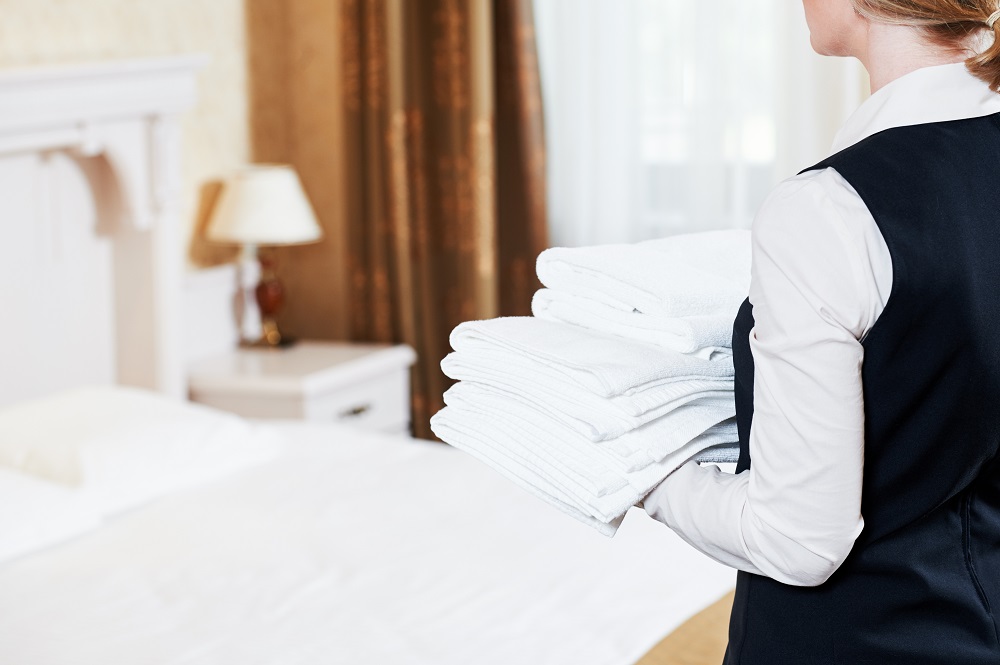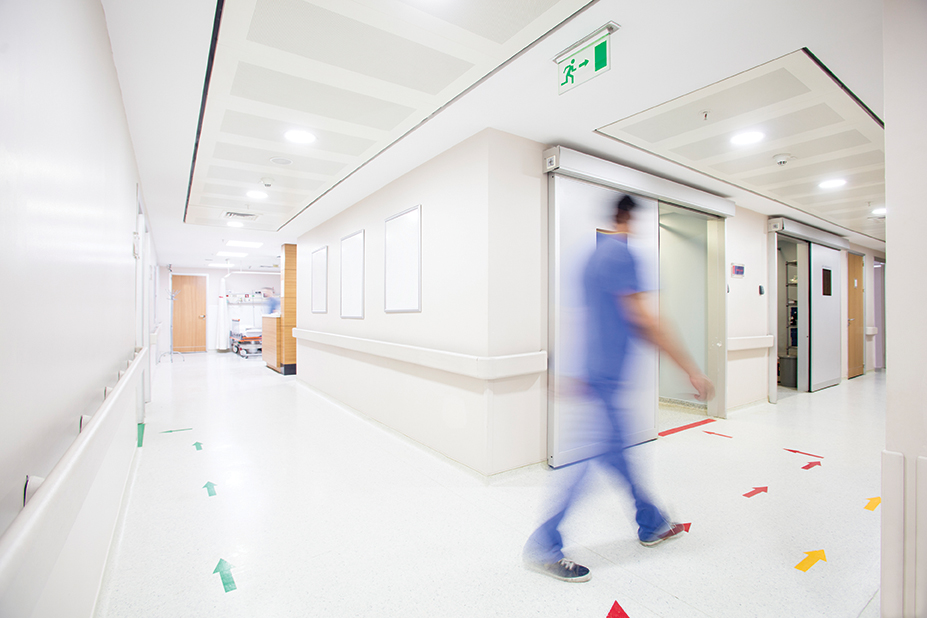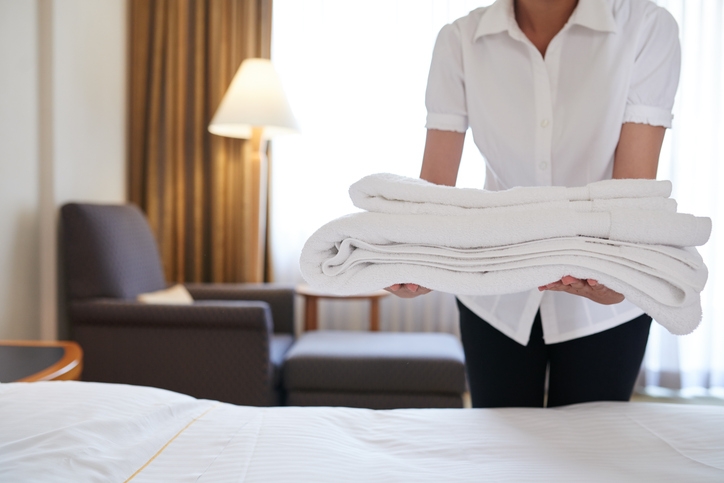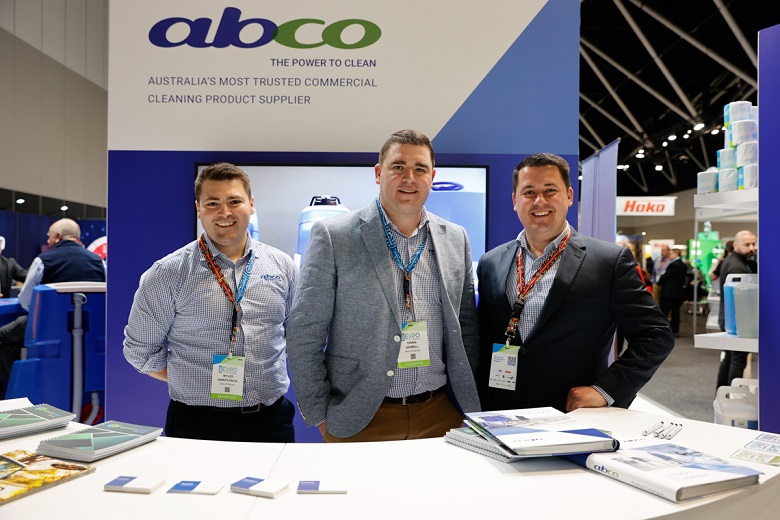
Amid concerns that some hotel chains may be getting complacent about hygiene standards in the wake of COVID-19, experts say it is more important than ever to get it right with cleaning processes and products.
Hotels are regarded as one of the toughest assignments for cleaning teams – and with good reason.
With guests, diners, and the general public constantly coming in and out of the site, and bathrooms and other facilities being used around the clock, it can be difficult to maintain adequate infection and hygiene controls in hotel venues.
As challenging as the task may be, there is a clear incentive to get it right, as a Harris Poll survey of 2047 adults reveals that for 53 per cent of respondents the level of cleanliness in a hotel, they visit will influence their decision to book again at the property.
Are hotels up to speed, though? Dr Gavin Macgregor-Skinner, senior director of the Global Biorisk Advisory Council (GBAC) in the United States, has some serious concerns about the direction of hotel cleaning.
In short, he says the frequency of cleaning and how to clean is a huge issue in the United States, with Nevada Governor Joe Lombardo recently signing a Senate bill which eliminates a requirement for daily hotel room cleanings, while states such as South Carolina are not subjecting hotels to set standards of cleanliness and regular inspections.
“A hotel room is so unique because of the number of people who come in and out over a period of time, like a year,” Dr Macgregor-Skinner says.
“The hotels will ask if you need your towels changed, but I’m worried about the floor, I’m worried about the carpet that hasn’t been vacuumed for three or four days. And you’ve got all these factors in your room that are perfect for germs, pollutants, contaminants, and allergens to proliferate and make you sick. So, are we waiting for an outbreak? Are we waiting for some sort of critical failure before we go back to understanding we need to maintain cleanliness?
As well as exposing guests to infection risks, Dr Macgregor-Skinner says less-frequent cleaning of hotel rooms makes them harder to clean when the cleaners do turn up.
“The room takes a lot longer to clean than if it was cleaned every third or fourth day, for example. We must remember that cleaning is important because it affects the health of the building, the health of people, our physical, mental health as well as our productivity.”
Cost-effective hygiene strategies
As hotels consider best-practice cleaning and hygiene approaches for their facilities, they have to weigh up efficacy versus the cost of their property-management programs.
Dr Lisa Ackerley, the director of public health and hygiene at Reckitt, the parent company of Dettol Pro Solutions, believes hotel businesses and others can meet appropriate hygiene standards without blowing the budget.
Her confidence comes from lessons learnt at the 2022 Commonwealth Games in Birmingham in the United Kingdom, where Dettol Pro Solutions facilitated a ‘Targeted Hygiene’ approach in its role as an official hygiene partner at the event.
The strategy involves putting in place hygiene-surface and hand-hygiene interventions when and where they are most needed. Dr Ackerley says good hygiene outcomes are not only reliant on whether hygiene interventions are practiced with efficacious products, but at what moments, how frequently and how well.
In high-traffic sites such as hotels, for example, there should be a focus on high-touchpoint areas such as door handles and hand dryers, as well as using signage as a reminder to guests to practice good hygiene through proper hand-washing.
“The whole concept is to take a risk-based and a pragmatic approach, not to get people to do too much cleaning, but to do the cleaning and disinfection when it really matters,” Dr Ackerley says. “That saves resources, deploying them at the times when it will make a difference.”
With COVID-19 slipping from media and public attention, she says many hotels and other facilities are not offering hand sanitisers in reception or areas or entrances.
“Yet it’s the most cost-effective way of reducing the incidence of infectious diseases, so we need to just keep reminding ourselves that the very, very simple first thing that people can do when they enter a hotel lobby or a restaurant is to use sanitisers.”
As a minimum, Dr Ackerley advises the following actions for hotels:
- identify high-touch ‘hotspots’ – make sure they are cleaned more frequently and at times of high usage levels
- use trusted products – opt for products with proven efficacy and use them based on the manufacturer’s instructions
- encourage good hand-hygiene practices – place hand sanitiser strategically to ensure guests know where it is and can use it easily
- use signage to encourage use – putting clever or humorous messages on the back of toilet cubicle doors can remind people of the need to wash their hands.
According to Dr Macgregor-Skinner, best-practice cleaning and hygiene should also involve measuring results. He is concerned that some of the big hotel chains are not paying attention to this critical area of health.
“I don’t see any measurements being done in these hotels. So where are the standards? So many people are saying right now, ‘Oh, I went to a hotel, and I got sick’, but I’ve got indoor air quality monitors here right now in my home that are measuring my indoor air quality using nine parameters. Setting those up in a hotel lobby is really easy.”
Pay attention to processes and products
Given the challenging environment that hotels present for cleaners, it is critical to focus on effective cleaning processes and products.
With the former, one key action is to conduct inspections of rooms after guests have checked out to assess the state of a room and to understand the cleaning job that is required. Then, after the job is done, the cleaners’ work should be reviewed to ensure that the work has been done to the hotel’s specific standards.
With the latter, Sabco Professional sales director Gerard Searl advises using high-quality microfibre cloths when cleaning a hotel room because they are washable – and therefore cost-effective – and reduce the amount of dust and germs in the environment.
“More hotels and accommodation providers are moving away from traditional mops and buckets towards premium microfibre cleaning solutions that provide a better clean than using traditional cotton mops,” Searl says.
“An increase in the frequency of cleaning high-touch areas with microfibre cloths is also being seen.”
These high-touch areas include door handles, check-in counters, light switches, tables, safes, coffee machines, mini bars and gym equipment.
Searl says the key to the cleaning power of microfibre lies in the fact that the fibres are finer than a human hair, so they reach into the smallest of crevasses.
“The split form of a microfibre allows it to trap and remove dirt and dust, including common bacteria and viruses, including but not limited to E-Coli and COVID-19.”
Dettol Pro Solutions has a partnership with Accor, the largest hotel operator in the Pacific (see panel) to provide products such as sanitisers to the chain’s hotels, apartments, and resorts.
Dr Ackerley says appropriate and regular training of hotel cleaning staff is essential to deliver strong hygiene outcomes.
More broadly, she encourages an approach that is built around a “partnership of hygiene” that sees owners, employees, guests, and visitors all playing their part to protect each other, especially through better hand hygiene.
“It’s not just for the people who own the hotel or the facility managers to make sure that everything’s hygienic. We all have a role to play.”
The way forward
In years to come, as hotels seek to excel on the cleaning and hygiene front while being mindful of budgetary constraints, technology advances related to robotics and data analysis will no doubt be an important part of the equation.
Searl expects the use of technology and automation within hotel and accommodation facilities to continue to evolve and help manage the cleaning of premises, especially in relation to large common areas and spaces.
“But automation may not play as important a role within individual rooms, although technology will be used more by management to ensure their staff are following approved cleaning techniques and to a high standard,” he says.
“Hand-held cleaning tools will be improved in terms of sustainability, ergonomics and performance due to an increase in technology being used in the research, development and production of cleaning products well into the future.”
For Dr Macgregor-Skinner, the hope is that the hotel industry gets serious about cleaning and hygiene and implements across-industry standards that all have to meet. In such an environment, cleaning hotel room doona covers and pillows every six months – a common current standard – will just not cut it.
Dr Ackerley concludes with the message that, although the COVID-19 pandemic has somewhat subsided, there are still plenty of infectious respiratory diseases and gastrointestinal diseases that can cause illness.
“We don’t want to abandon some of the good practices that people have put in place during the pandemic,” she says.
“Now is not the time to take our foot off the gas.”
This article first appeared in the November/December issue of INCLEAN magazine



